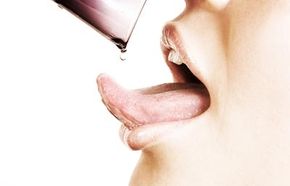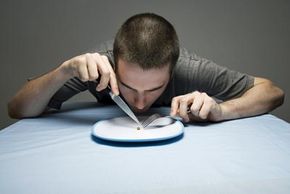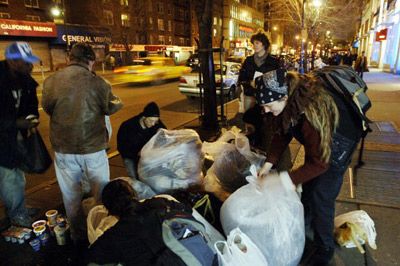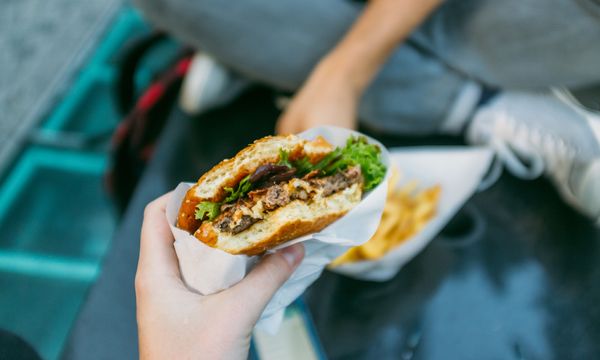What happens to the human body without food and water? Without food, the body must find another way to maintain glucose levels. At first, it breaks down glycogen. Then, it turns to proteins and fats.
The liver turns fatty acids into byproducts called ketone bodies until there are too many of them to process. Then, the body goes into a life-threatening chemical imbalance called ketoacidosis.
It's actually dehydration, though, that has a more immediate fatal effect. A person can only survive without water for a matter of days, perhaps two weeks at most. The exact amount of time depends on the outside temperature and a person's characteristics.
First, the body loses water through urine and sweat. A person then develops ketoacidosis and uremia, a buildup of toxins in the blood. Eventually, the organ systems begin to fail. The body develops kidney failure, and an electrolyte imbalance causes cardiac arrhythmia. Dehydration leads to seizures, permanent brain damage or even death.
Jasmuheen has said, "If a person is unprepared and not listening to their inner voice there can be many problems with the 21-day [fasting] process, from extreme weight loss to even loss of their life" [Source: Jasmuheen]. Science says that the human body cannot survive without food and water for that amount of time, regardless of what the inner voice says.
Jasmuheen volunteered to appear on Australia's "60 Minutes" to prove her claims of living on light. After 48 hours, her blood pressure increased, and she exhibited signs of dehydration. She attributed these symptoms to polluted air.
The program moved her to a location further from the city, but as her speech slowed, pupils dilated and weight loss continued, the doctor supervising the observation advised the program to quit the experiment before she lost more kidney function, and they did so [Source: Yahoo News via Rick Ross]. Jasmuheen maintains that "60 Minutes" stopped the test because "they feared [she] would be successful" [Source: Jasmuheen].
In spite of scientific evidence to the contrary, some breatharians allege that they live healthy lives without food or water. Wiley Brooks founded the Breatharian Institute of America and claims to have been a breatharian for about 30 years. He appeared on the TV show "That's Incredible!" in 1981 and appeared to lift 1,100 pounds. On his website, he claims to lift 600 to 900 lbs. without exercising and to sleep one to seven hours a week.
Somewhat oddly for a breatharian, he recommends "diet coke [sic] in the 20 ounce and 1 liter sizes, in plastic bottles only. Along with a double-quarter-pounder with cheese meal at McDonald's." For a mere $10 million, Wiley Brooks will initiate you into The Breatharian Institute of America.
Hira Ratan Manek, another noted breatharian who died in 2022, claimed to have lived on sun energy and water since June 18, 1995.
Can a person survive without eating food? For a while, yes. People on hunger strikes have survived for months. It's the lack of water that will get to you.



